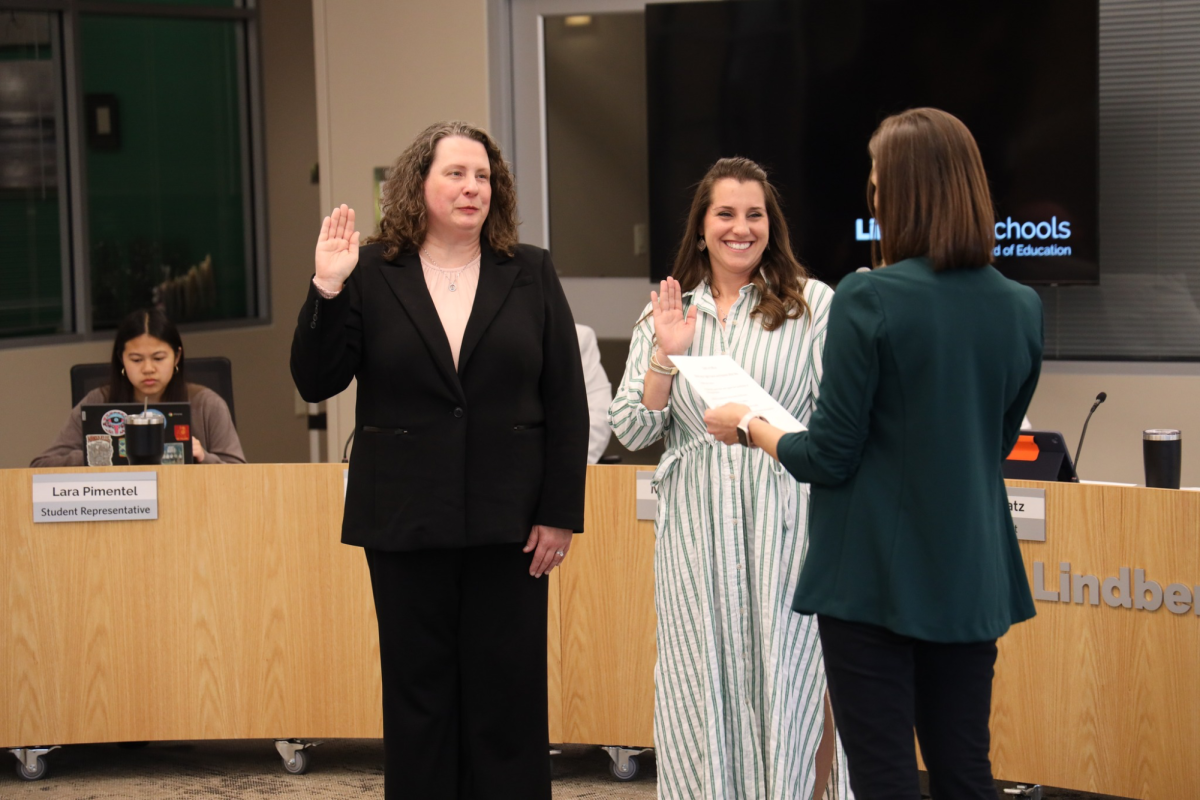By MIKE ANTHONY
Executive Editor
Superintendent Tim Ricker’s recent announcement that volunteers are being sought to serve on task force study groups to help build the 2006-2007 budget came as a complete surprise to Mehlville Board of Education member Karl Frank Jr.
Frank told the Call that he was unaware volunteers were being sought until he read a Sept. 30 press release issued by Mehl-ville’s School/Community Relations Office.
Even more alarming, Frank said, was the fact that Ricker did not mention the task force study groups were being formed at a school board meeting three days earlier.
“I think it’s an outrageous circumvention of the process. We had a board meeting 72 hours earlier and I found out about the task force groups afterwards. Not a word of it was mentioned to the board at that meeting,” Frank said, referring to the Board of Education’s Sept. 27 meeting.
“I had no idea, and I find it hard to be-lieve that some of the other board members didn’t know. Quite frankly, I’m not even sure what these budget action teams will accomplish. As far as I’m concerned, it’s no different than me and my buddies going to a local establishment and talking school business. They have no authority at all. They were not assigned a charge by the Board of Education,” he said.
“So as a citizen and a taxpayer, I’m completely outraged that my elected officials are not doing their jobs and as a director of the Board of Education, I’m disgusted at my colleagues’ complete willingness to give up their responsibilities of oversight,” Frank added.
Frank believes Ricker should have presented a proposal to the Board of Educa-tion to establish the task force study groups. If board members agreed with the superintendent’s proposal, they could have voted to establish the task force study groups and given a specific charge to the groups.
In the release, Ricker announced five task force study groups will be formed:
A High School Task Force that will study graduation requirements and an al-ternative to block scheduling.
A Middle School Task Force that will study an alternative to teaming and the schedule for middle schools.
A Transportation Committee that will study the cost for busing students less than a mile and less than 3.5 miles. It also will study the cost for activity transportation and a fee-based transportation system.
An Elementary Programming Commit-tee that will study reducing art, music and physical education to state minimum levels. It also will study how to design a su-pervision program to eliminate recess/cafeteria aides.
A Student Fees Committee that will study how to determine the total cost for all school activities that are co-curricular and out of school time. It also will study how to design a fee structure to cover the cost of such activities.
Frank questioned the specific areas the task force study groups will be considering. Other areas should be considered for potential cuts, he said, before considering those that would directly impact the classroom, including eliminating or reducing ex-penditures for the School/Community Re-lations Office, high school principals, in-district travel reimbursements, cell phones and out-of-state travel.
“… As far as I’m concerned, there’s a lot of other places that we need to cut. They’re going directly to the classrooms. I say we stay out of the classrooms,” he said. “By cutting out our PR department, that’s a quar-ter of a million dollars in savings. Having a PR department is great, but we need to stay away from cuts in our classrooms. So if it’s a choice between textbooks and re-sources for our teachers or our PR department, I’m sticking with the textbooks and resources for our teachers.”
Each of the district’s high schools has one principal and four assistant principals.
“We have 10 principals in two high schools. Take out one principal from each high school and you’ve got a quarter of a million dollars,” he said. “It will be a little tougher to get by, but we can get by and, again, we’re staying out of the classrooms.”
He also believes the district could realize a savings by eliminating or reducing in-district travel reimbursements.
“We have thousands of dollars spent yearly on reimbursements for intradistrict travel for six-figure administrators …,” Frank said, noting that administrators have received reimbursement for traveling to school football games, school picnics and other school functions such as plays.
“When I’m going to the homecoming football games, I’m not asking for reimbursement on my travel. So I’m volunteering my time and my travel and I expect the six-figure salaried administrators to do the same … When we’re talking about overcrowding in our classrooms and we’re talking about not having textbooks and not being able to pay our teachers, I think this is just one thing that goes with the job for these administrators,” he said.
Frank also believes the district could re-alize a savings by eliminating unnecessary cell phone usage.
“We’re spending tens of thousands of dollars a year on cell phone bills. Is that completely necessary when every administrator has a phone? I can see where we could have limited accounts for extreme emergencies only, but again things are slim right now and finances are short so these extra benefits that we have are the things we need to do away with,” he said.
“I also think another place we can cut out of the budget is unnecessary out-of-state travel. Going to the conventions is great, but we have the Internet now and we’ve got plenty of other resources. There’s no reason to travel out of state when we have a budget crunch like we’ve got,” he added.
Frank termed the issues the task forces will be studying as “scare tactics.”
“They’re scare tactics, and they’ve never worked in the past, and it’s not going to work now because … all it does is it lowers people’s expectations. It doesn’t scare them into voting yes,” he said.
“It scares them into thinking what are they doing here? If you give the public the impression that you might close down an elementary school, they basically come back and say: ‘Well, if you can close an elementary school and still educate the same amount of kids, why don’t you just go ahead and close an elementary school and educate the same amount of kids?’ You’re hurting yourself. You’re hurting what you’re trying to accomplish for the district and you’re stepping on your own toes by doing these kinds of things. But again I don’t have the opportunity to say this to my fellow board members because they keep doing this business behind closed doors,” Frank said.





















